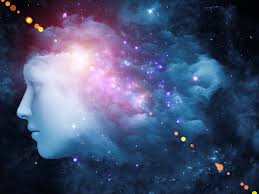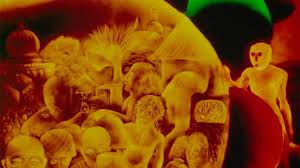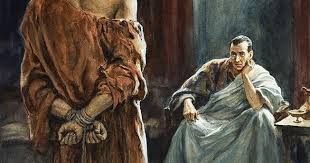
Viewing “Our Universe”
I recently watched the Netflix documentary, “Our Universe.”
It’s a glitzy attempt to relate current natural species to the creation of the universe – repeating the view that everything is descendent from stars. It follows the lives of animals, alternating between showing the pace of their lives and illustrated video of explosions and other outer-space phenomena.
I searched online in vain for the show’s script but couldn’t find it, so I’m recounting what I saw and heard of the series from memory.
It has a lot going for it, principally its narration by Morgan Freeman. The video of animals on land and sea is compelling and the connection made between them and the evolution of stars and planets interesting.
Lack of Originality and Honesty
I watch a lot of nature shows, however, and this one, like many others, suffers, in my opinion, from lack of originality and honesty. For one thing, I get the impression that this show, and many nature documentaries, use films of animals produced by others, perhaps several years ago, made to appear contiguous with the current show. It also follows the trend to give the animals cute, modern names, a form of anthropomorphism – ascribing human feelings to what is not human.
But the most disturbing kind of dishonesty is what the show omits. If the producers were objective, they would at least acknowledge that many people believe that God created the universe, with an explanation of how religious views of creation mesh – not including a literal interpretation of the Book of Genesis – with the theory of evolution.
A Gallup poll last year reported that 81 percent of Americans believe in God, though that number is down several points from previous Gallup polls. And many, if not most, of them believe that God created the universe and everything in it.
Moment of Creation?
The series also seems to endorse, though not clearly, the big bang as the moment of creation, failing to explain that the big bang acted upon what already existed.
“The Big Bang event is a physical theory that describes how the universe expanded from an initial state of high density and temperature,” says Wikipedia. “Various cosmological models of the Big Bang explain the evolution of the observable universe from the earliest known periods through its subsequent large-scale form.”
So, as I understand it, the Big Bang isn’t an explanation of how the universe began, but a theory about an early cosmic event and its subsequent evolution. The theory does nothing to compromise the existence of a First Cause, a Designer, the Creator. As far as I know, science hasn’t answered the question of how the universe began nor why there is something rather than nothing.
Interestingly, the Netflix documentary, “Our Universe,” repeatedly notes the “miracles” in the natural world, the “perfect” alignment of our world within the solar system that enables life, the “order” underlying the apparent violent indifference in the cosmos, the incredible orderliness of the cycle of human and animal life – what I would call evidence of a design.
Scientific, not Religious
Some may argue that the purpose of the documentary isn’t religious, but scientific – helping people understand the connection between life on earth and its cosmic beginnings, and that’s OK, as far as it goes.
In my view, people of faith should have the utmost respect for science and scientists, whom God also created, and for the work they do. But the perspective of science is not the only way to view the universe, and the scientific method, though well suited for its tasks, doesn’t encompass all of human experience and aspirations. It isn’t a good way, for instance, to experience art, literature and music.
Omitting the religious view on creation further undermines the faith of people who have come to believe that the scientific view of life is the only valid one. Religious leaders and teachers should not promote the idea that science is contradictory to faith, and scientists and their promoters shouldn’t do the inverse.




